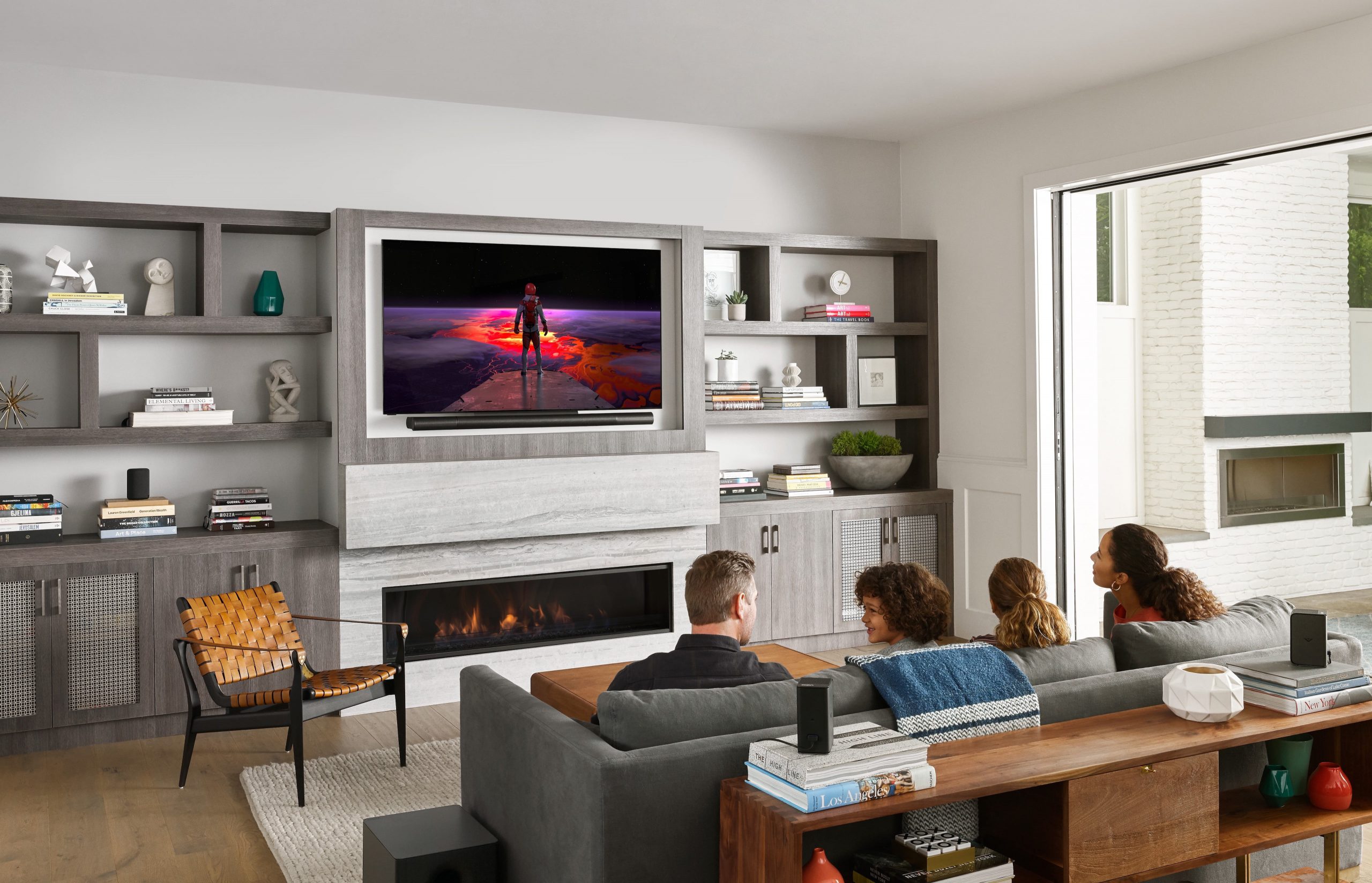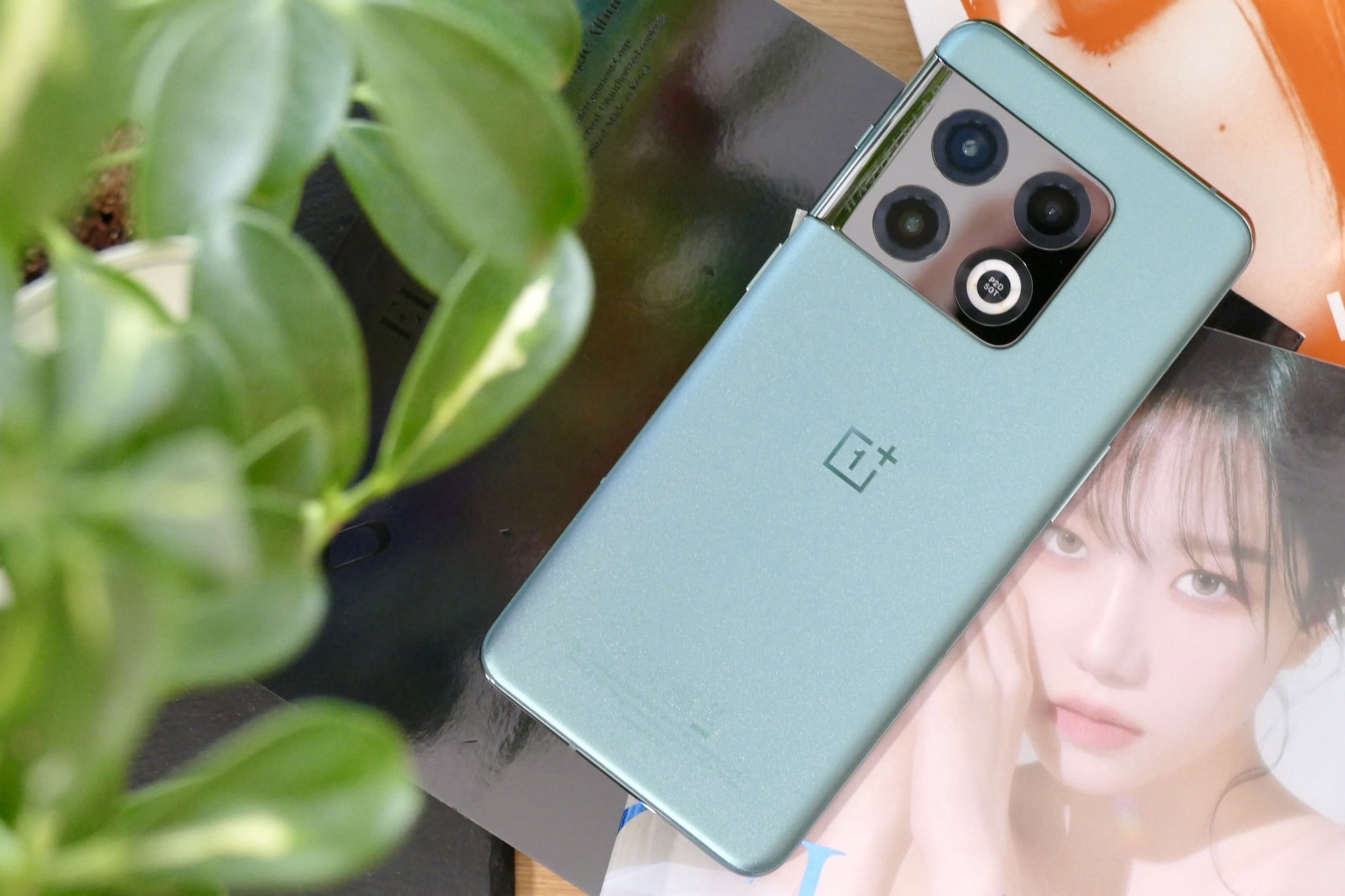There’s no bigger upgrade you can make to your home theater setup than getting a new TV, and with offers available from some of the biggest retailers on the internet now is a great time to shop. If you’re looking to upgrade, you’ll find a wide range of 4K TV deals available to save you some cash. But these TV deals won’t last: Due to the ongoing microchip shortage, manufacturers can’t keep churning out new televisions, so stores can’t refill the shelves, and some of the most popular must-have TVs are being marked as out of stock at leading retailers. Our point? You’ll want to shop the best TV deals now or risk disappointment.
Today’s Best TV Deals
43-inch Toshiba 4K Fire TV — $280, was $350
Why Buy:
If you’re looking for something a little smaller (and more affordable) than a massive, cinema-worthy television, this 43-inch Toshiba 4K Fire TV could be the answer to your prayers. It has HDR for extracting more detail and color from supported content and upscales HD content to 4K Ultra HD.
Plus, like the 55-inch Insignia 4K Fire TV below, it’s a Fire Edition TV, so it runs Amazon’s Fire TV smart software. If you’ve ever used an Amazon Fire TV Stick before, the experience will feel very familiar. There’s even an Alexa Voice Remote in the box to control the television using your voice.
65-inch Vizio V-Series 4K TV — $500, was $600
Why Buy:
Out of all the 65-inch TV deals happening now, this 65-inch Vizio V-Series for $500 is the best value. The television runs Vizio’s own SmartCast smart software, which is a bit like having a Google Chromecast baked into the television, offering instant access to streaming services like Netflix.
Like all high-resolution 4K TVs worth buying, the Vizio V-Series has HDR on board (in this case, we’re looking at two standards: Dolby Vision and HDR10+) for making movies, shows, and live events appear more lifelike, and a 4K Upscale Engine for converting HD material into 4K Ultra HD in real time.
60-inch Samsung TU7000 4K TV — $530, was $550
Why Buy:
Best Buy’s offer on this 60-inch Samsung TV is a 4K TV deal not to be missed. It’s (of course) a Smart TV, so it can access all the leading streaming services out of the box like Disney+ and has Samsung’s 4K Upscale Engine on board for showing HD content in a 4K Ultra HD resolution.
Our one gripe with the Samsung TU6985 is that it only has two HDMI slots on board, so you’ll want to invest in an HDMI splitter if you’re wanting to hook up a set-top box and other accessories, like a PS5. One of these will set you back around $30 — but that’s a small price to take home 60-inch TV for only $530.
70-inch LG NanoCell 75-Series 4K LED TV — $750, was $1,100
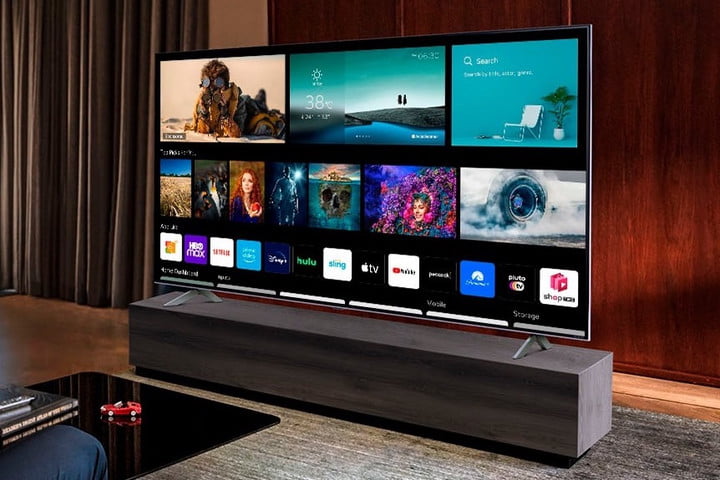
Why Buy:
LG’s NanoCell TVs represent a great value, with the kind of color and contrast you’d normally find on more expensive models. The built-in WebOS software has been updated for a clean and simple look that makes it easy to access tons of streaming apps from big names like Netflix, HBO, Disney+, Apple TV, Hulu, and more.
If you own Bluetooth speakers, you can connect them to the NanoCell 75-Series for a quick and easy (and wireless) way to do surround sound without an A/V receiver or a dedicated soundbar. Gamers will appreciate features like auto low-latency mode and TruMotion 120, which improves the refresh rate for a much clearer picture while gaming.
55-inch Samsung The Frame 4K TV — $1,400, was $1,500
Why Buy:
Is it a picture frame? Is it an original da Vinci? No, it’s Samsung’s The Frame TV. Designed to blend into the background and be used as a photo frame when it isn’t in use, The Frame is a television appealing to the most design-conscious of shoppers. An acquired taste, it’s one of the most innovative TVs on the shelves.
What’s fascinating about The Frame is it isn’t a gimmick. When it’s being used as a television, it has a stunning QLED screen, a high-end technology designed to rival the likes of the OLED TV above, delivering high brightness and fantastic contrast that’ll mark a massive step up from any standard LED television.
Also available
Because it’s a 4K TV, it’s also armed with Samsung’s trademark 4K Upscale Engine for showing HD content in HDR10+ , 4K Ultra HD for drawing more detail out of the scene at hand, and smart software to access streaming services like Amazon Prime Video and Netflix — when it isn’t displaying works of art while idle.
65-inch Sony A80J OLED 4K TV — $1,800, was $2,200
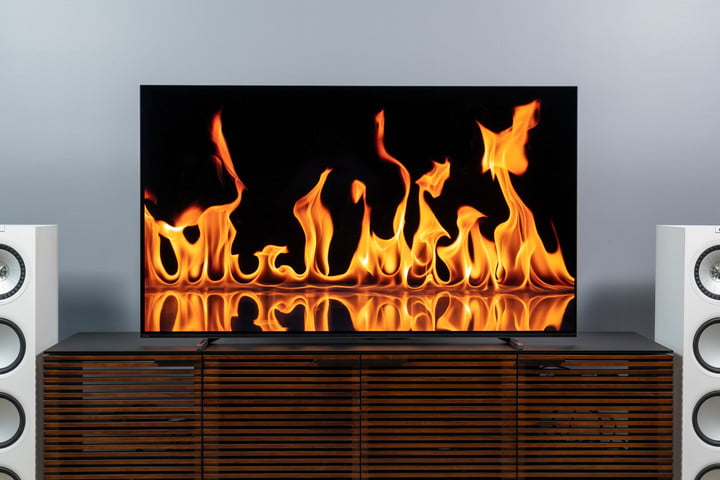
Why Buy:
This Sony A80J 4K OLED TV offers the best picture quality you can find. In fact, just about the only thing our reviewer could object to was the TV’s price, but with this discount it’s now a more affordable option.
The A80J is a dream come true for movie and TV show fanatics, with impeccable color accuracy and support for all major flavors of high-dynamic range (HDR), including Dolby Vision, HDR10, and HLG. And, surprisingly for a flat-screen TV, the built-in speakers sound really good all on their own — largely due to Sony’s unique technology that turns the entire TV screen into a speaker.
The only thing to keep in mind is that this model lacks support for the gaming enhancements of HDMI 2.1. You get HDMI eARC and 4K at 120Hz, but the A8H doesn’t offer variable refresh rate (VRR) or auto low-latency mode (ALLM), both of which are pretty important to PC and console gamers with the latest hardware. They may be added with a future firmware update, but if gaming isn’t a top priority, this TV will absolutely blow you away.
How to Choose a TV
The most important thing to consider when shopping for a TV is the size of the television, frame included. You need to know your limit (and stick to it). After all, the last thing you want to do is shell out for new TV only to find it won’t fit through the door, let alone on the wall. Having 60 inches to spare doesn’t mean you can steam in with a 60-inch 4K TV. This measurement is just the size of the screen, which is often enclosed in a frame that adds an extra inch or two to each side. So consult the dimensions.
Once you’ve set a realistic limit, it’s time to start considering the features you need. There’s a lot to choose from, ranging from Roku’s beloved Roku OS smart software on TCL’s 4K TVs to Google Assistant on most Sony and Vizio models. We suggest taking a long think about the tools that will make your life easier. If you hate scrolling and would rather have the option to tell your television what to do, opt for a Sony or Vizio. However, if you’re after the largest selection of streaming services in town, it’s best to go with a TCL.
What size TV do I need?
Don’t fall into the trap of rushing into a deal on a television that’s far too large to fit into the space you have available. Instead, take a second before you start your search to measure the height, width, and depth of your desired location. Make a note of everything, too, as you’re going to compare them to the dimensions of the television itself — as well as the width of the stand if you’re planning on placing it on a console table — to make sure it will fit.
Done? Now use a viewing distance calculator to work out the ideal screen size for how far away you’re going to be sitting. As soon as you have this measurement, compare it to the space available, and decide on a suitable size. For instance, if the calculator recommends an 80-inch display and you only have enough space for a 55-inch, stop there. But if you were eyeing a 50-inch and the calculator suggests a 65-inch, it’s probably best to upsize.
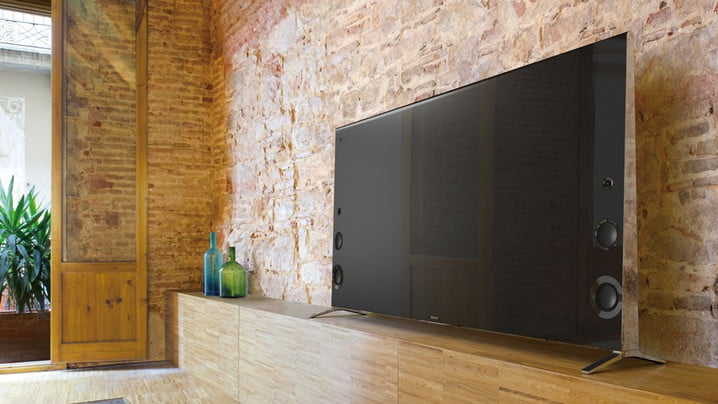
Remember what we said earlier, though — it isn’t all about screen size. You need to consider the entire footprint of the television to determine whether it will fit into the place you have in mind. It’s not uncommon to find a TV that measures in at 65 inches but has a 60-inch screen at the center. It all depends on how wide the bezel surrounding the display is and whether there are any design features that take up additional living room real estate.
Do I need an OLED TV or a QLED TV?
QLED TV and OLED TV are two terms thrown around a lot, but what do they mean? Put simply, they’re the name of two different screen technologies that are a step up from the LED display on your current HDTV or 4K TV. Both deliver superior brightness, more accurate color reproduction, and deeper black levels (thus greater detail), but which do you need if a regular LED 4K TV — which will go down a treat for most of us — just won’t cut it for you?
In a nutshell, QLED is the better all-rounder excelling in natural light — so if you’re looking for something to watch a movie, a show, or even play a game in broad daylight with the drapes open, opt for one of Samsung’s QLEDs. For everyone else, we’d suggest an LG or Sony OLED (although, it’s the latter that delivers the best home viewing experience). They have a better viewing angle, can reach a more obsidian-like black level, and consume less power.
What is HDR, and do I need it?
Short for High-Dynamic Range, HDR delivers a higher level of contrast between light and dark, while utilizing a wider selection of colors, to create a much more realistic image. This may not sound like the be all and end all, but it is — representing a significant step up from standard 4K Ultra HD. So if you’re buying a new television in 2020, you’re going to definitely want to make sure it has HDR on board in the form of HLG, Dolby Vision or HDR10.
Do I need a 4K TV or an 8K TV?
For those looking to take their home entertainment setup to the next level, Samsung’s 8K TVs are an attractive proposition. Keep in mind, though, that 8K Ultra HD content is few and far between, so you’ll be betting on networks adopting the standard in the future — and with 4K Ultra HD having only just ventured into the mainstream, there is a lot of work to be done before 8K Ultra HD replaces it, so purchasing an 8K TV right now is outright risky.
Instead, we recommend taking your entire budget and pouring it into the best OLED or QLED you can find, depending on your preference. If you’re after the former, the Sony Master Series A9G is our top pick. For the latter, it’s the Samsung Q90R that wins. Opting for an OLED or QLED will serve you better in the long run. You won’t run the risk of owning an 8K TV that may become obsolete sooner rather than later. Or, at least, before 8K Ultra HD becomes the new broadcasting standard, whenever that may be.
